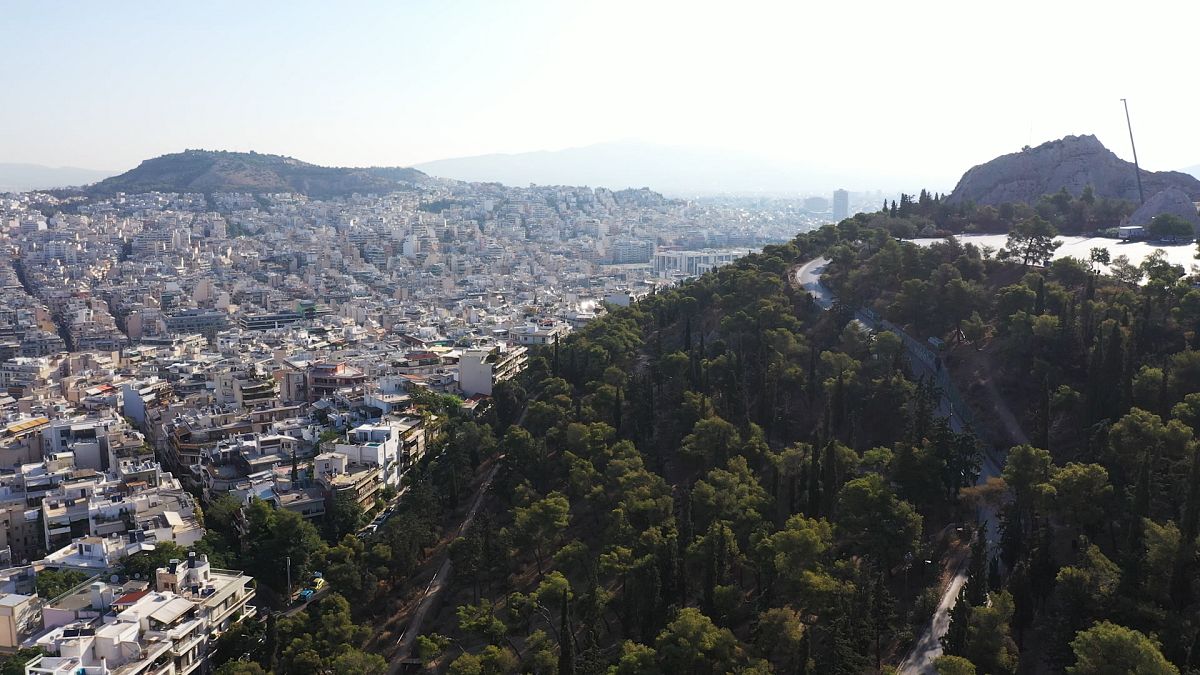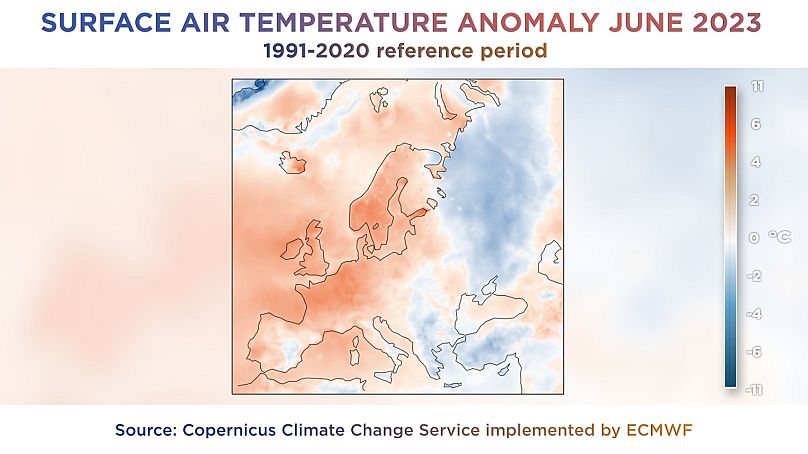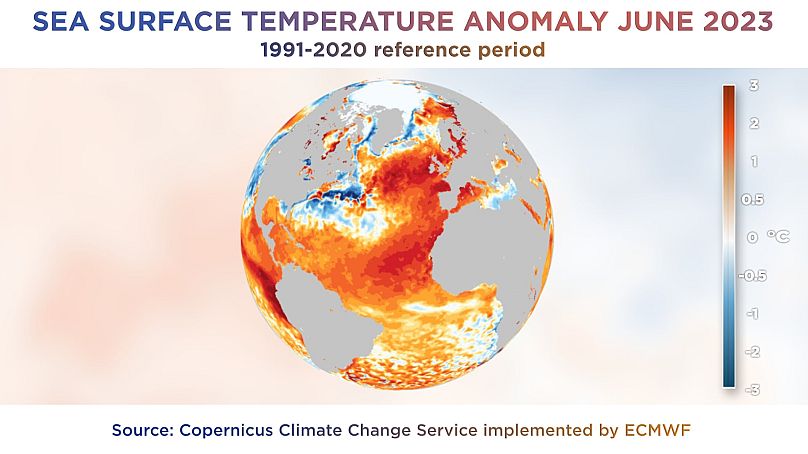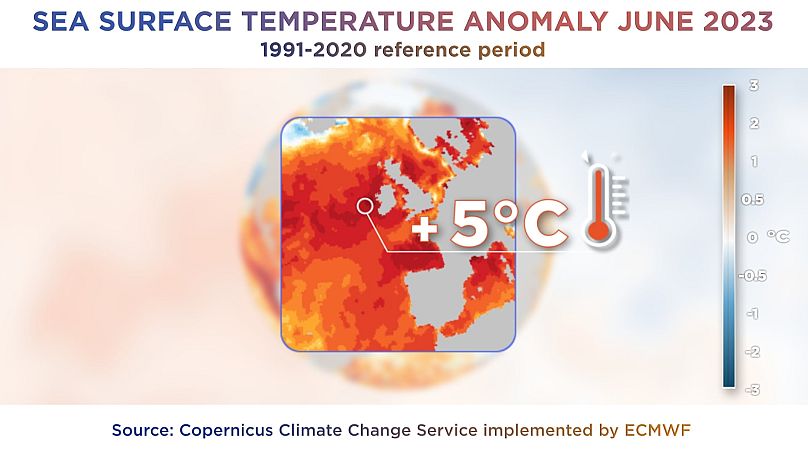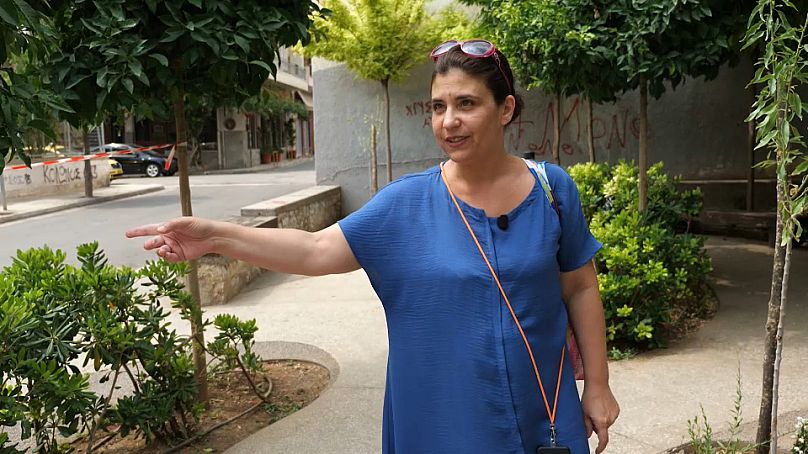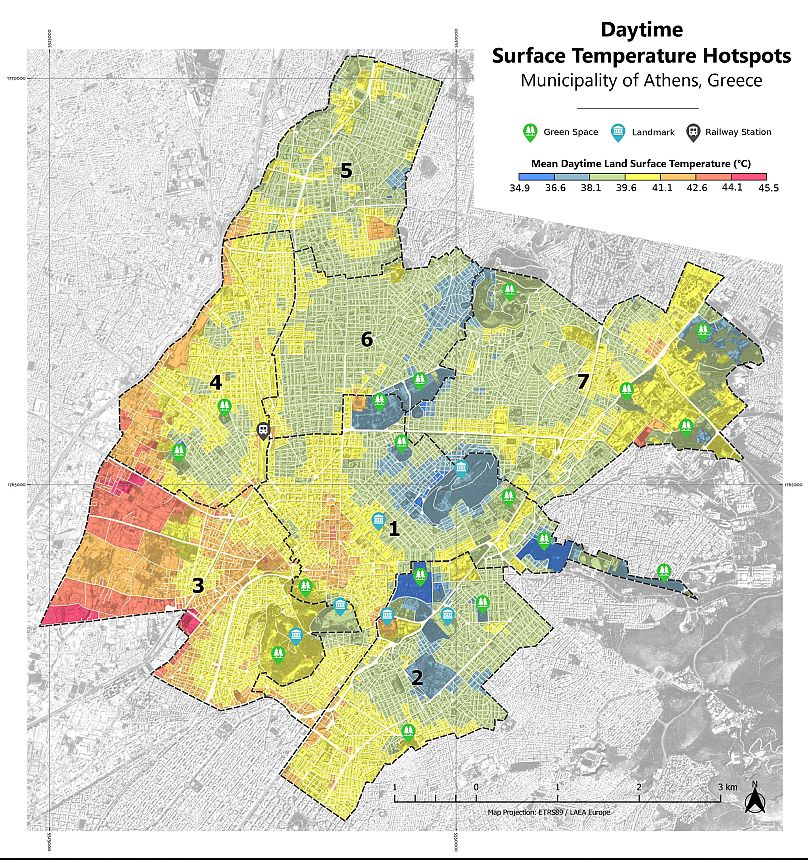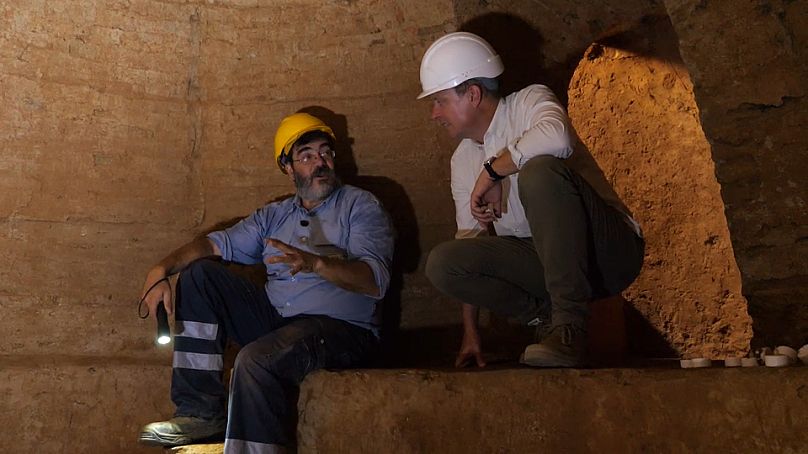With temperatures in the Greek capital reaching 40 degrees Celsius, Climate Now explores how Athens is trying to offset heat health risks with a 'cool routes' app, new pocket parks and renovating an ancient Roman aqueduct
This month in Climate Now we explore how the Greek capital of Athens is adapting to a warmer world.
It comes as the latest data from the Copernicus Climate Change Service shows that worldwide we just had the warmest June on record.
Warmest June in Ireland, UK, Belgium and Netherlands
Globally temperatures last month were just over 0.5 degrees Celsius above the 1991-2020 average, according to the Copernicus Climate Change Service.
Looking at the map of European anomalies - Ireland, the UK, Belgium, and the Netherlands had their warmest June on record.
Meanwhile, it was colder than average across Türkiye, Greece, parts of the Balkans and Russia.
One of the main factors driving the global heat record is that the surface of the sea is warmer. A map from the Copernicus Climate Change Service shows there were exceptionally high sea surface temperatures over the North Atlantic, with extreme highs around the British Isles.
The water peaked at five degrees above average to the west of Ireland - hitting temperatures you'd normally expect at the end of summer, rather than in June.
Several factors are likely to have contributed to the warmer water - lower winds, lower particle pollution, and the long-term effects of climate change.
How is Athens adapting to a warmer world?
The Greek capital is right in the middle of a heatwave at the moment, with temperatures up to 40 degrees Celsius.
With white buildings stretching to the horizon, Athens is one of the most densely built cities in Europe, and also the warmest, with a marked 'urban heat island' effect.
However, Athens is also considered a leader in adapting to a warmer world. The city's Chief Heat Officer, Elissavet Bargiani, explains the motivation for change, telling Euronews that the global warming outlook for her home town is grim.
"If you see the projections for the next few decades are dramatic, we will be in constant heat conditions in the summer. We need to adjust our way of life into this heat and adapt," she told Climate Now.
"Heat is a silent killer. Heat is going to be the biggest problem regarding the city of Athens in the next few years," she added.
To adjust and adapt, Athens has a complete action plan to raise awareness around the heat health risks and to rethink the city, partially supported through its collaboration with the EU's Reachout project.
One of their initiatives is a smartphone app called EXTREMA Global, which shows the coolest walking route from A to B.
"It shows you the route to your destination according to the coolest streets to follow," Elissavet Bargianni explained. "The algorithm calculates the temperature according to satellite data. And also it calculates the density of the trees of the routes."
Elissavet takes us to one of the ten so-called Pocket Parks the city has created on wasteland. It's now a cooling spot in one of the city's warmest neighbourhoods.
"I think if you put your thermometer under the trees and on the asphalt, you will see at least two degree Celsius difference," she said.
Athens now has seven cool centres, one in each district of Athens. These are public spaces where anyone can come to cool down and chill out in a free and open environment.
The cooling effect of greenery is vital because summer temperatures in Athens have already risen by an average of 1.9 degrees in the past 30 years.
And there's more to come, says Pannos Giannopoulos, a meteorologist at the Hellenic National Meteorological Service.
"I think what the climate change studies show is that the climate in Greece will become warmer, with hotter summers but also less cold winters and less rain in most areas of the country," he said.
The forecaster says the country is already doing a lot to reduce the risks of heat: "We issue weather warnings for high temperatures on time, at least three days before the incident. These warnings have either yellow or orange colour and- very rarely- red colour. So there is a colour code that explains to the people how serious the heat situation is in our country."
Tackling Athens' water worries
Water is the next challenge for Greece's ancient capital city. That's why one Roman-era aqueduct in Chalandri, a suburb in northern Athens, is undergoing an ambitious renovation project.
It could bring 50,000 cubic metres of groundwater per year to the suburbs - water that currently is unused, and simply flows to the sea.
"If the aqueduct is still running, still working - because it's still working - we want to take this water and distribute to the daily life of the of the neighbourhood, of the residents," revealed Kostas Gerolimatos, deputy mayor of Chalandri and the project manager of the EU's Cultural Hidrant initiative.
In 2019, 15% of Athens was green space. The capital's long-term goal is to reach 30%.
"It's not going to happen tomorrow. But it will be a dead city if we don't do anything like that in the coming years," warned Elissavet Bargianni. "I think we will do it," she concluded.
